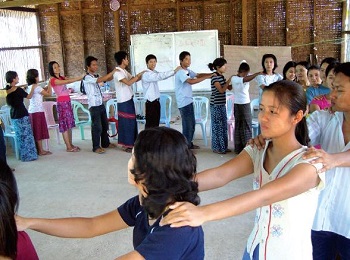LESSON
Lesson Learned: Cultivating Democratic Leaders from Marginalized Groups in Thailand
After a project ends local partners should be able to continue the work begun. Specifically, mobilized young people should have follow-up, guidance and resources. Building fundraising techniques into the project design could address this issue. Such forward planning may include developing networks that can support young people including local authorities, media and potential donors (private and public sector).
Project Partner
The Asia Foundation
Project Description
The project was designed to engage young people from marginalized populations in four regions of Thailand, to empower them to voice their needs, access their rights, participate in political processes, and improve their lives and communities. The grantee set out to create new leaders among young people to lead actions in the disenfranchised communities. While the project supported the implementing partners financially and to a lesser extent with expertise, it did not demonstrate significant added-value in the area of democratic development. The trainees were by and large already engaged in development work in their communities and, once the project ended, the partners and the young people continued as before. The project designers would have been more aware of this, and potentially had a chance to rethink the relevance of the design, if they had reviewed existing and earlier practice in this area, and had considered in more depth the way NGOs in the regions work and from where they get their funding. The project fell into the trap of becoming, essentially, a short-term provider of funds.
Report
Evaluation Date
December 2010
Theme
Country
